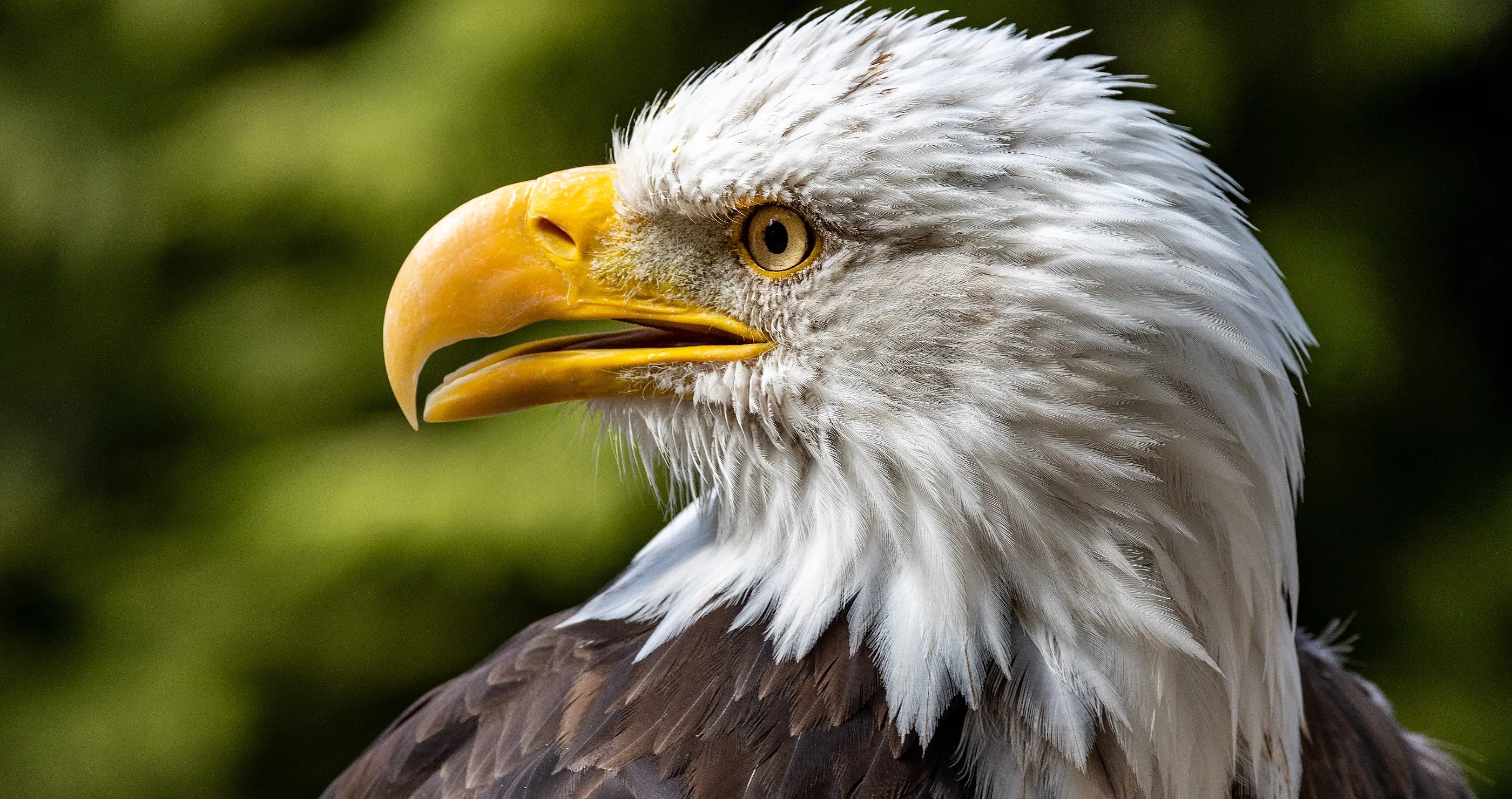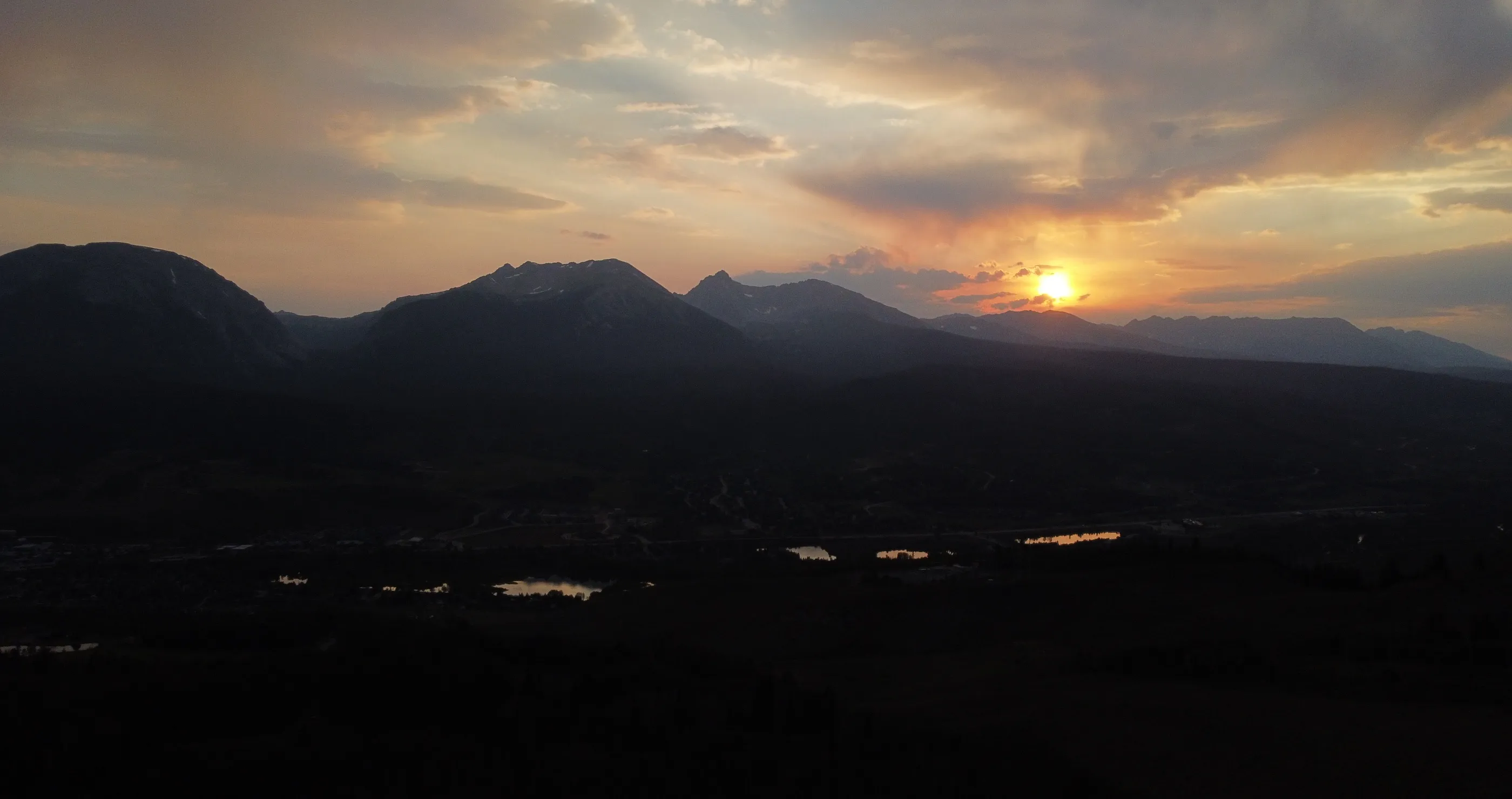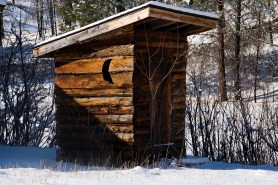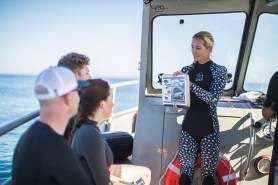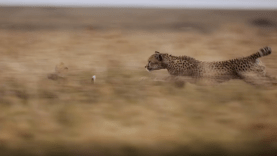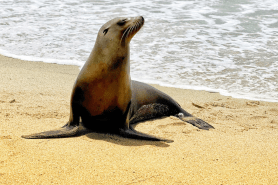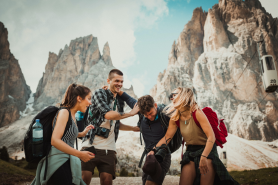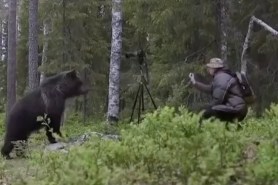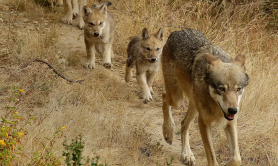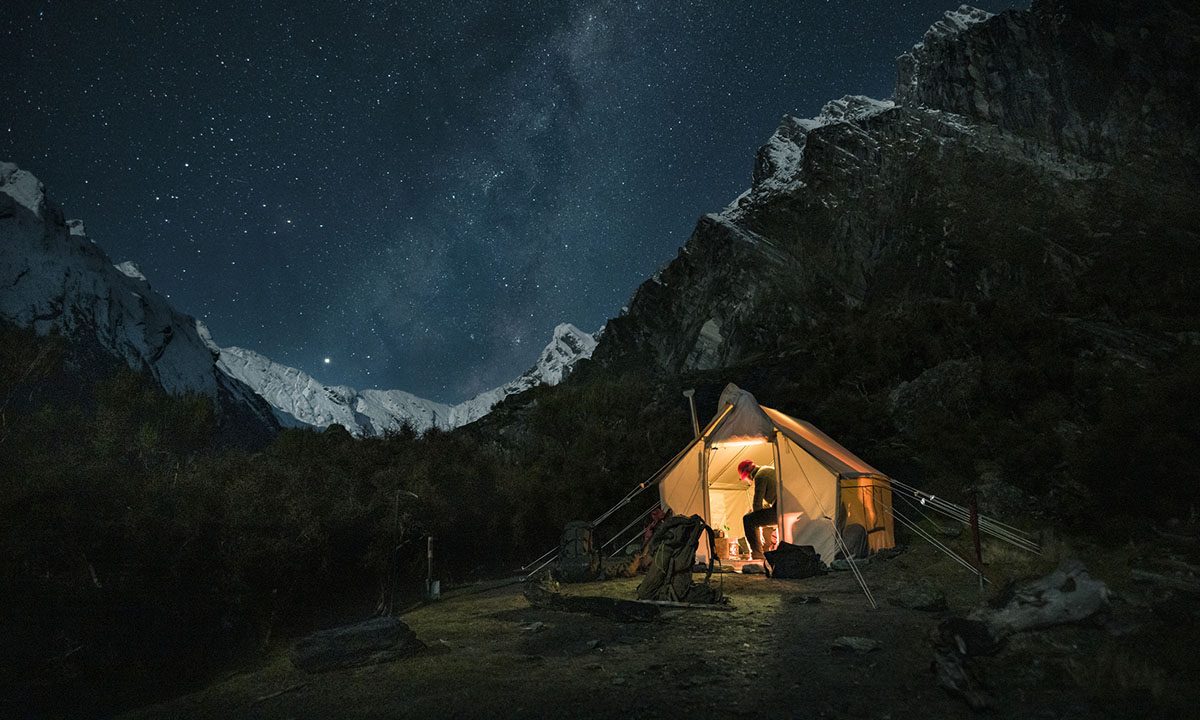

It’s release day in the U.K. for Bear Grylls’s latest book, Do Your Best: How to be a Scout. In this comprehensive but accessible guide, Bear teaches Scouts of all ages real-life skills and inspires them to face challenges both big and small.
Videos by Outdoors
In this full-chapter excerpt, Bear shares his thoughts on how readers can live more freely by doing things like grounding, traveling and opening themselves up to new adventures, going camping, and more.
Live More Freely (Excerpt from ‘Do Your Best’)
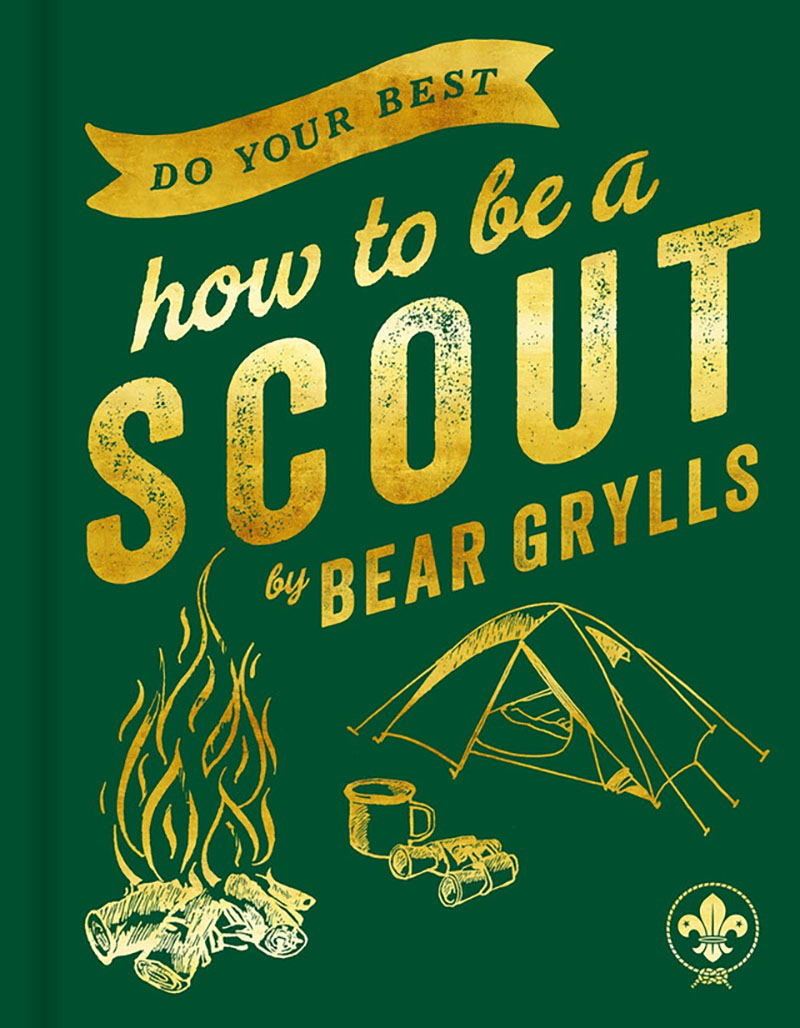
We didn’t always live indoors. Our ancestors spent almost all of their lives outdoors in the wild, out in the sun, snow and rain. When it was cold, they huddled together to stay warm. Each day, they spent as much as a hundred times longer in the outdoors than we do today. What if we could rediscover our wild selves and learn to live more freely?
Our ancestors found shelter where they could – in caves, under trees, under rough structures. And never with any closed windows. They definitely didn’t have air fryers, streaming subscriptions or games consoles. You get the point.
Being outdoors so much taught them to be in tune with nature. Their senses were honed. They could identify a hundred different kinds of animals just from their scent or sound. They could light a fire with a tiny flint spark, and tell what kind of wood was being burnt from its smoke. They could follow faint tracks in the mud and sand. Now only very few of us have these skills. But they can all be relearnt (and you’ll find plenty of them in this book).
Today, the average child spends just four to seven minutes a day playing outside. That’s compared with a staggering seven hours each day on their devices or in front of a screen. Whatever way you look at it, that’s not healthy. We’re missing out on the sunlight we need for a healthy immune system, the sense of joy we get from feeling the sun’s heat on our skin. Most importantly, we’re missing out on the chance to play and interact with others in the great outdoors. This is where lifelong friendships are made. And that’s why Scouts is so important – to give everyone the chance to do this, no matter whether you live in a tower block or a country cottage.
Luckily, there are plenty of things you can do to get back in touch with your wild self. Here are just some of them.
Be Grounded
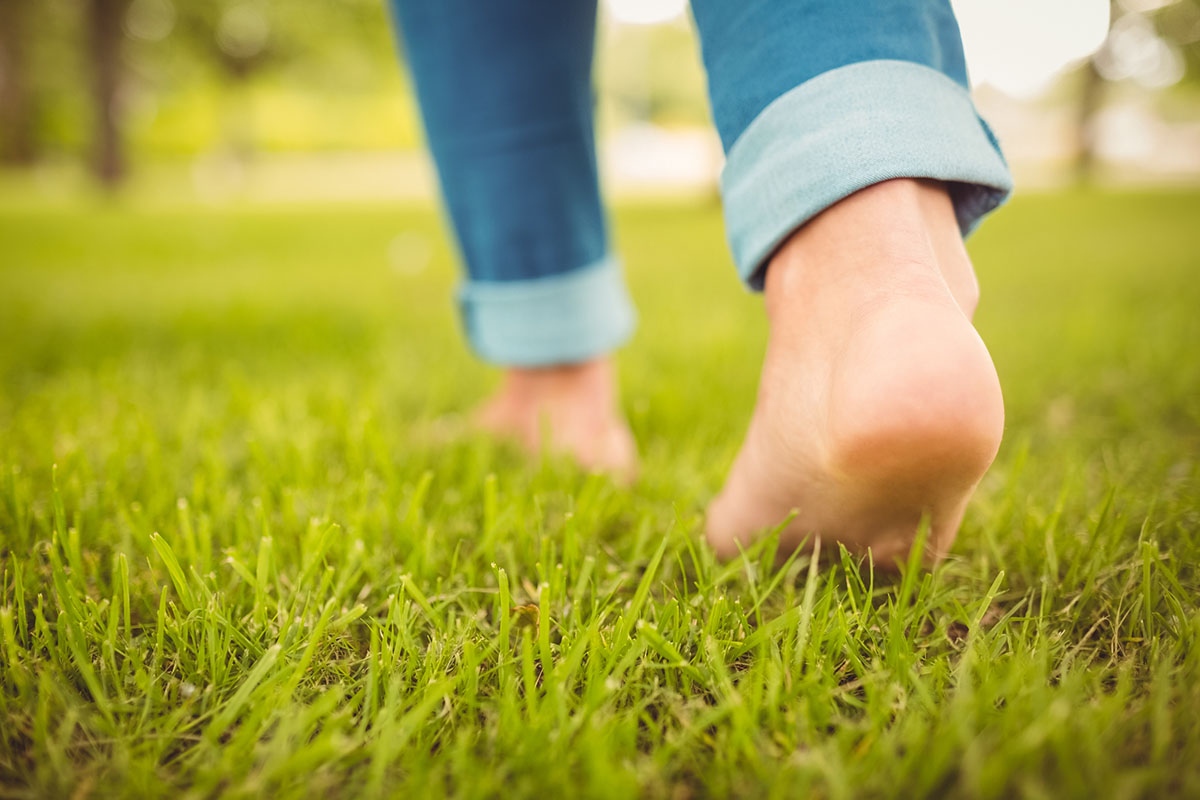
Take off your shoes and socks. Try it right now. You have an astonishing 7,000 nerve endings on the soles of each of your feet. That’s why they’re super sensitive. Imagine yourself walking on hot, dry sand or cool, damp grass. Better still, find some real sand or grass and try it for real. Even if you’re just imagining it, you probably feel calmer already.
Research has shown that simply walking barefoot on the earth for half an hour each day boosts our red blood cell count, meaning we can better resist disease and illness. This is the true meaning of being grounded. It’s so simple, costs nothing and makes you feel great. I try and do this every day. Even in the city, I go and find a park in the morning.
“Adventure is not a place; it’s a state of mind. A journey into the wild is as much a journey into our soul. When we return, we’re a different person.”
– Bear Grylls in Do Your Best
Go and See the World
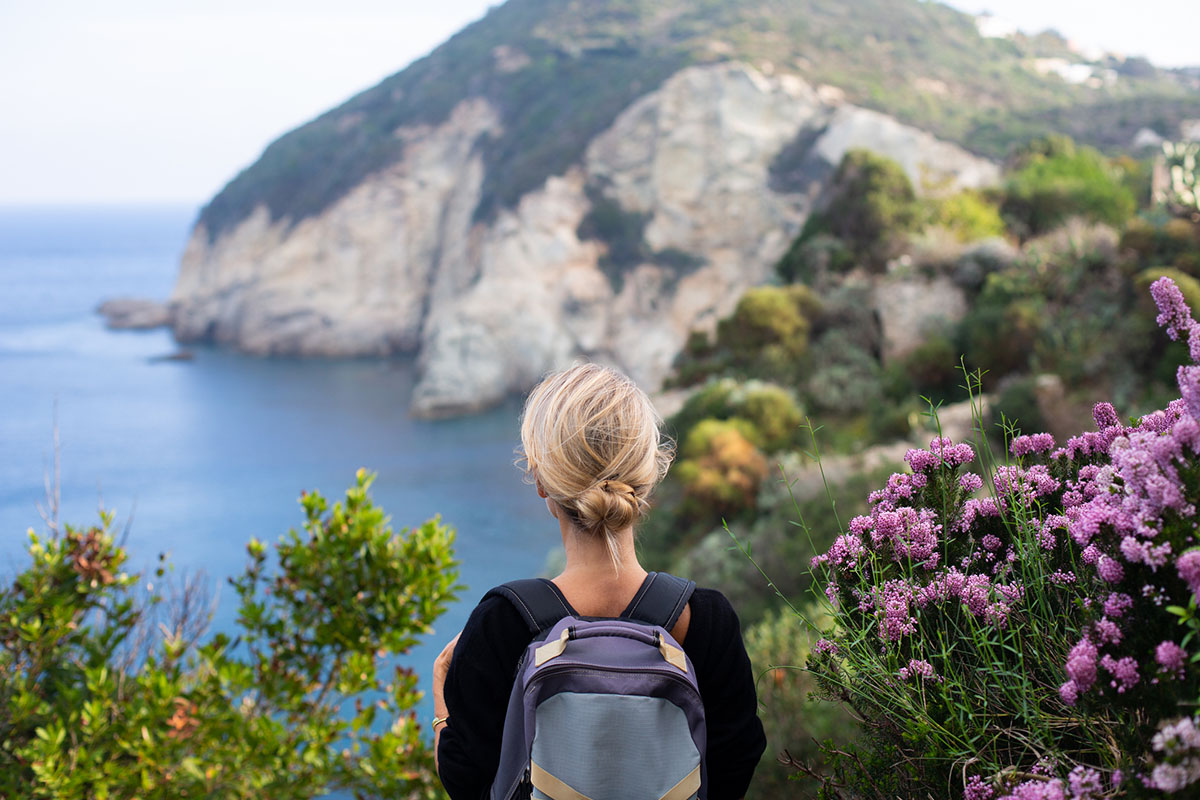
Life rewards those who dare, those who dream and those who choose adventure. Adventure is not a place; it’s a state of mind. A journey into the wild is as much a journey into our soul. When we return, we’re a different person.
Whether it’s a day trip to a local wood, a hike across the fields or something bigger – like an expedition to the crystal-clear Norwegian fjords or a trip to Iceland to take in the geysers and stupendous geology – these will expand your horizons in every way. You’ll feel more closely connected with nature and appreciate the true wonder of our planet.
Too often, we’re thinking ahead or regretting the past. We need to be more present. Live well in the moment. Seize the day and choose adventure.
Out in the jungles of Panama, a jaguar can step out right in front of you. But adventure doesn’t need to be as extreme as that. So many special places are just a short hop away. Just get out there and explore. Take a bike on a train. Travel a few stops and you’ll be ready to explore a totally new environment, away from your familiar stomping ground. And the best way to appreciate what we have is to get out there and experience new stuff. Leave early on a Saturday morning and in two or three hours you can be standing on a cliff top, watching guillemots and razorbills swoop and dive around you, or swimming in a lake. Go and discover your country. Research fun things like this that you can do legally and safely near you. You will find lots, I promise.
“Everyone has the right to an adventure – especially in the outdoors. Life is about grabbing opportunities.”
– Bear Grylls in Do Your Best
Be Open to New Adventures
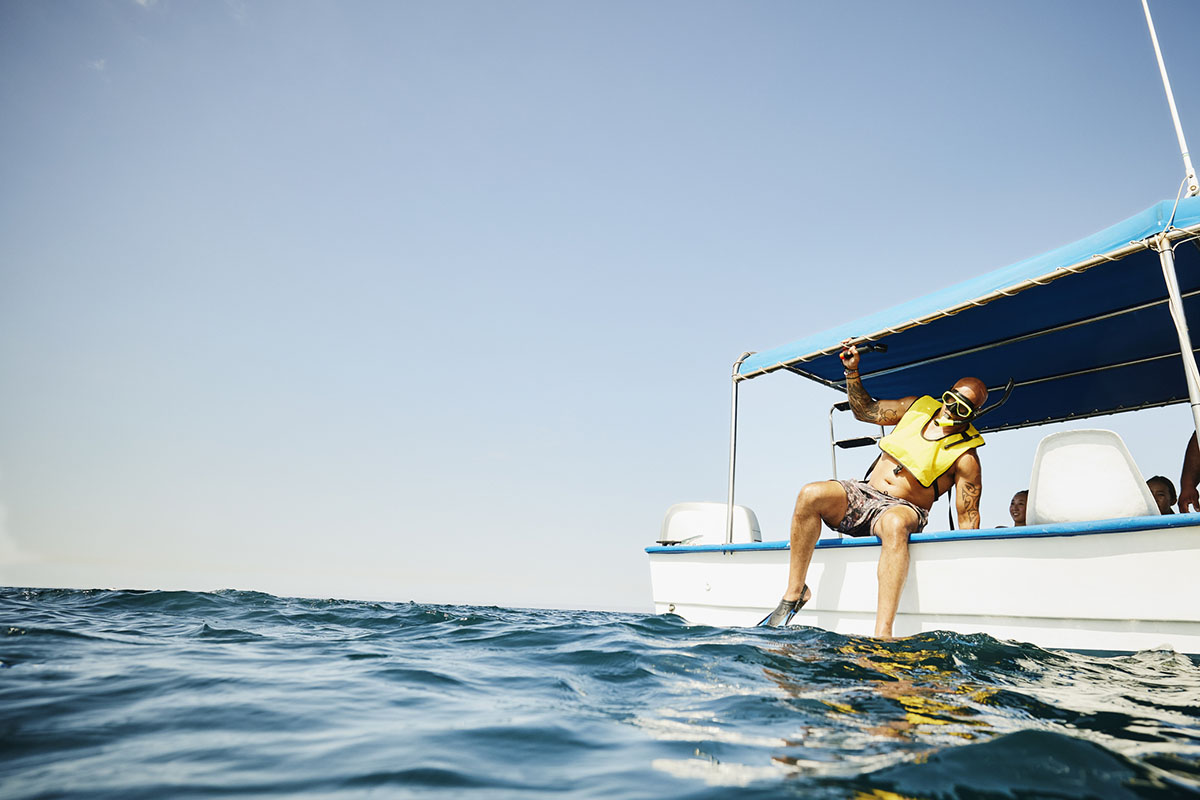
So often our lives run on rails; we cling to our routines, and before you know it, it’s Monday morning and school and work again. We can choose to live life more freely – we only have so much time on this planet. Let’s fill it with people and memories – not things.
Everyone has the right to an adventure – especially in the outdoors. Life is about grabbing opportunities. Scouts is full of opportunities. Your leaders are always working hard to help you gain new skills and experiences. Always be grateful and always make use of those gifts of time, expertise and experience.
My father used to say that the two most important things in life were following your dreams and looking after your friends along the way. This is what we do in Scouts. It’s about loving and doing great adventures and helping others to experience the same.
But it can sometimes be quite hard to get out and experience the outdoors, especially if you’re young – it can be quite an intimidating place. And lots of people don’t know how to ‘get out there’. That’s part of why Scouting is so popular, it provides a safe way to explore the outdoors. You’re going to have an adventure, but you’re going to do it with people you know and trust, and you’re going to be looked after.
So never take your place in Scouting for granted. Many wish they could join too. You’re one of the lucky ones. (This is why we always need more adult volunteers – to help us reduce the waiting list.)
“There’s nothing better than spending time with friends in the outdoors. It’s among the greatest experiences in life and should be accessible to everyone, no matter where you live, what you look like or how you grew up.”
– Bear Grylls in Do Your Best
Go Camping

When was the last time you explored the great outdoors? That’s really explored – where you set out into the unknown with a map and compass, a rucksack, a tent and sleeping bag; the sort of exploring that makes your heart beat faster?
Can you remember the patter of rain on your tent, the sound of owls hooting or the rustling of the wind in the leaves at night? It’s a feeling of absolute freedom and belonging – re-establishing our relationship with both ourselves and the earth. Somehow the world looks more hopeful and exciting when you’re peering out of a tent flap instead of a front door. It’s moments like these that make you feel most alive. A night in the outdoors is also a reminder that not everything that’s precious and valuable costs a lot of money.
There’s nothing better than spending time with friends in the outdoors. It’s among the greatest experiences in life and should be accessible to everyone, no matter where you live, what you look like or how you grew up. Exploring woods and forests, watching foxes and squirrels, playing games, going on nature trails . . . there’s a lot to choose from.
Summer is when the world fully comes to life, becoming a sort of adventure playground. When people go away for a weekend’s camping in the summer it can sometimes feel much longer. That’s because you’re spending over fifteen hours a day outside. Summer begins when you can wade through a field of bluebells in May. In June, birds are criss-crossing the skies, foraging for food for their chicks. July and August are the classic summer camping months, joining friends around a crackling fire, enjoying the long nights. The moon seems bigger and the world is full of possibilities again.
Going camping teaches us things about ourselves; it reminds us that we depend on each other to get by and that the most precious things in life are friendships, the natural world and reaching our potential.
I’ve camped all over the world. I’ve got great memories of having adventures at home on the Isle of Wight, where I grew up. I remember being up on a cliff top with my dad, looking out at the sea. Those chalk cliffs formed much of the backdrop to my childhood. I think a lot about those cliffs; to me they were like my stepping stones to adventure.
“It feels so natural to be working on the soil, following the seasons and getting to know the cycles of nature. It reminds us we’re all part of nature.”
– Bear Grylls in Do Your Best
Grow Something

One of the best ways to live more freely is to grow your own flowers or fruit and veg. Not only will you give yourself a free and plentiful supply of produce, gardening is one of the best ways to make you feel good too. Get grounded again!
It feels so natural to be working on the soil, following the seasons and getting to know the cycles of nature. It reminds us we’re all part of nature. In the words of Mahatma Gandhi: ‘To forget how to dig the earth and tend the soil is to forget ourselves.’
Starting an allotment, a communal space for people to grow and tend their produce, gives you a strong sense of purpose. You’ll be doing plenty of manual work, which will tire you out and help you sleep well, and of course, you’ll be getting a bucketful of fresh air every day. That’s not to mention all the good nutrients and vitamins you’ll be getting from the food you grow. Because it’s not processed (been through a factory and sat in a fridge for months) it’s so much better for you too.
And we haven’t even talked about the benefits of making new friends – you’ll have neighbours on all sides of you, from all walks of life, many of whom will be happy to share their years of wisdom. (Although some might like to be left alone to get on with their work and enjoy a bit of peace and quiet, so tread carefully!)
A great way to begin is to find a space that’s right for you. Most cities, towns and villages have allotments. You’ll have your own plot and it’s up to you what you grow there and how much work you put in. Find out where your nearest allotment is, then register your interest. There’s normally a waiting list, but it’ll be worth the wait. You’ll then need to pay a fee, but it’s usually affordable.
Next, start planning. One of the most fun parts is grabbing a fresh piece of paper and drawing out the different areas, and deciding what to grow. Is there a path or a small shed already there? Would you like to add these? Remember, this is your space (for now at least) and you can do things your way.
Now the hard work begins: preparing your soil. The more work you put in at this stage, the more fruitful your allotment will be. Try and dig up as many weeds as you can, and remove as many loose stones as possible. Turn the soil and enrich it with compost or manure. It’s now time to do your homework. It’s important you plant things at the right time to give them the best possible chance. For example, carrots are best planted in autumn.
It’s important to keep your allotment well maintained, making sure your plants are well cared for and especially well watered. It might be that there’s a central place or water butt in the allotment where you can easily get water. Slugs need to be managed too, as you’ll discover!
Do Your Best: How to be a Scout is now available in the U.K., Ireland, and Australia/New Zealand, and it will be published in April 2024 in the U.S. Buy it here.
